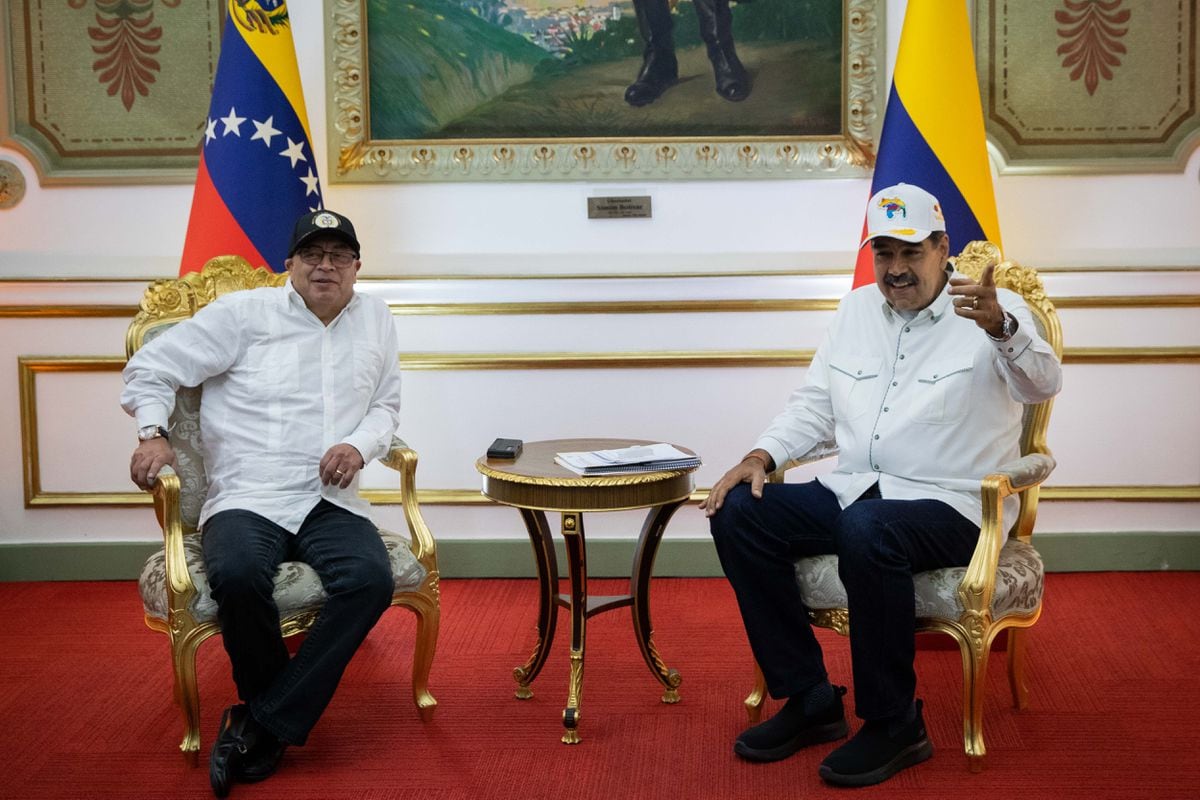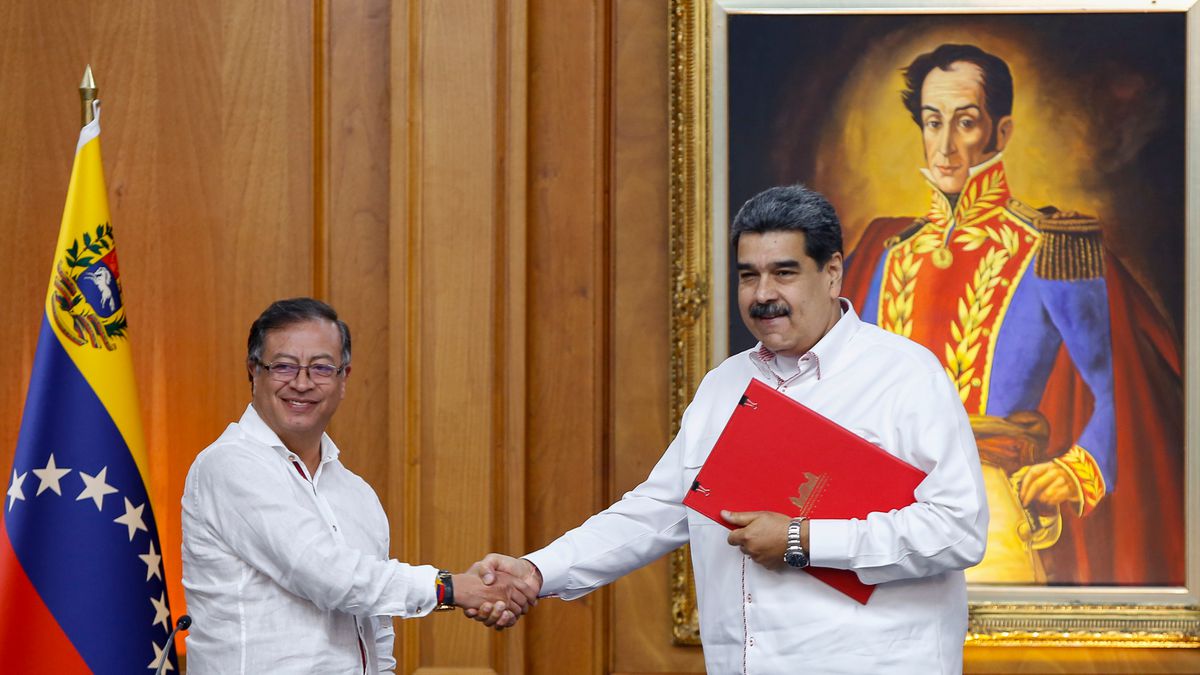The Foreign Minister of Colombia, Álvaro Leyva, and his Cuban counterpart, Bruno Rodríguez, in Havana. Foreign Ministry of Cuba.
The renewed efforts to achieve "total peace" in Colombia, and in particular to reopen a dialogue table with the ELN guerrillas, also pass through Caracas and Havana.
The thaw on both fronts has been rapid, almost immediate.
His first week in power has been enough for Gustavo Petro to put on track the reestablishment of the always difficult relations with the Chavista government of Venezuela, completely broken since 2019, and straighten them with Cuba, very battered by the diplomatic hostility that characterized Iván's period. Duke.
Bogotá's new foreign policy has boldly taken its first steps.
Colombia marks the path of the new Latin American left, but it must relate to the old.
President Petro has put diplomacy at the service of peace, and his idea of "total peace", with which he intends to implement the agreement with the FARC with greater determination, dialogue with the ELN and advance a policy of submission for groups criminals like the Clan del Golfo.
This foreign policy “will have the objective of establishing his legacy as the first left-wing leader of Colombia, with a focus on the normalization of relations with Venezuela and Cuba,” the consultancy firm Colombia Risk Analysis predicts about the first 100 days of the president.
Although Petro made an effort to distance himself from authoritarian regimes such as those in Cuba and Venezuela during the campaign, both countries are also key players, for different reasons, in the incipient negotiations with the ELN, which enjoy early regional support – Boric has even offered to Chile as an alternate venue for the dialogue table–.
The week left important milestones on both fronts.
On the one hand, Petro and the Venezuelan president, Nicolás Maduro, crystallized their rapprochements by appointing their respective ambassadors: Armando Benedetti will settle in Caracas and Félix Plasencia in Bogotá, with the mission of reviving both diplomatic and commercial relations after years of tensions between two neighbors who share more than 2,200 kilometers of border.
And on the other hand, a delegation from the Colombian government traveled to Cuba, where it announced that it recognizes the ELN negotiators who have been stranded on the island for years.
There he ratified the decision to resume talks with the last active guerrilla in Colombia, which has acquired a binational status due to its notorious presence in Venezuela.
The Havana Dialogues
“There is no peace process in which Cuba has not had a
significant and important role for Colombia, and that was obstructed and discredited by the past government”, values Senator Iván Cepeda, part of the delegation that traveled to Havana together with Foreign Minister Álvaro Leyva and Peace Commissioner Danilo Rueda, who were accompanied, among others, by international and Church delegates.
“The previous government conditioned dialogue with the ELN for four years.
This negligence obstructed the role of guarantor countries [Cuba and Norway], and allowed the violence to worsen in territories such as Catatumbo and Arauca.
In 24 hours, the government of total peace made amends to Cuba and opened a path for dialogue,” said Cepeda, who plays a key role in the Senate peace commission.
The guerrilla of the National Liberation Army was born more than half a century ago precisely under the influence of the Cuban revolution.
The Government of Juan Manuel Santos signed the historic peace agreement with the FARC at the end of 2016 and launched the umpteenth attempt to negotiate with the ELN, which could not be concluded.
At the beginning of 2019, the ELN carried out a car bomb attack against a school for police cadets in Bogotá that left twenty dead.
That attack blew up a process that had already languished since Duque, a critic of the agreements with the FARC, relieved Santos in August 2018.
The rupture brought profound diplomatic repercussions.
After the attack, Duque ignored the protocols signed by the parties, including the guarantor countries, leaving the ELN delegation in Cuba in limbo.
The island refused to extradite the negotiating leadership, protected by the protocols, which provoked hostility from Bogotá.
When the Donald Trump Administration in the United States designated Cuba as a "State Sponsor of Terrorism" in January 2021, it justified its decision on Duque's claims.
Leyva, the new Colombian foreign minister, called from Havana to put an end to that qualification, "with which it has been tried to disregard Cuba's commitment to peace."
"We will be at the service of what both parties request," said his Cuban counterpart, Bruno Rodríguez.
The "normalization" with Caracas
The reestablishment of relations with Venezuela is another highly sensitive front.
The two countries have already agreed on a "gradual normalization" to turn the page after years of irreconcilable differences under Duque, who never recognized Maduro and gave his unrestricted support to opposition leader Juan Guaidó.
The two capitals intend to recover the commercial exchange and advance in the vehicular reopening of the formal crossings in a border full of illegal routes, dominated by armed groups and through which all kinds of contraband filters.
The border line has also been an obligatory passage for migrants, one of the largest flows of people in the world, with 2.5 million Venezuelans living in Colombia.
The agenda between Bogotá and Caracas is not limited to the armed actors, but in this complex panorama the eventual peace negotiation also emerges strongly.
The ELN, which is characterized by a federated structure, is today a more robust guerrilla group with greater military capacity.
Over the last four years, it has expanded in northeastern Colombia, along the axis of the border with Venezuela, and has moved towards a binational guerrilla format, in part as a consequence of the strategic mistakes made by the Duque government in handling bilateral relations. and the historical absence of a border control policy, indicates the analysis published by the Fundación Ideas para la Paz in this newspaper.
Organizations such as Human Rights Watch (HRW) have denounced that the Venezuelan security forces have been accomplices of the ELN,
Bogotá's main interest in normalizing relations with Caracas, rather than improving border conditions or resolving the situation of migrants, lies in Venezuela "being an active part of the negotiating table with the ELN, a constructive presence, very similar to what Santos did with [Hugo] Chávez at the time of the negotiation with the FARC,” says internationalist Sandra Borda, author of
Why are we so parochial?
A brief international history of Colombia.
The viability of any dialogue also goes through the international board, in which several bands are played.
In its first days, the government that is just emerging has already marked the place that Colombian diplomacy wants to occupy.
Subscribe here
to the EL PAÍS newsletter on Colombia and receive all the key information on the country's current affairs.

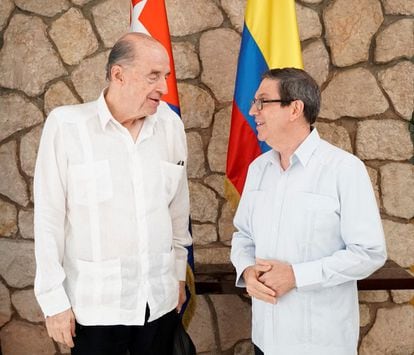
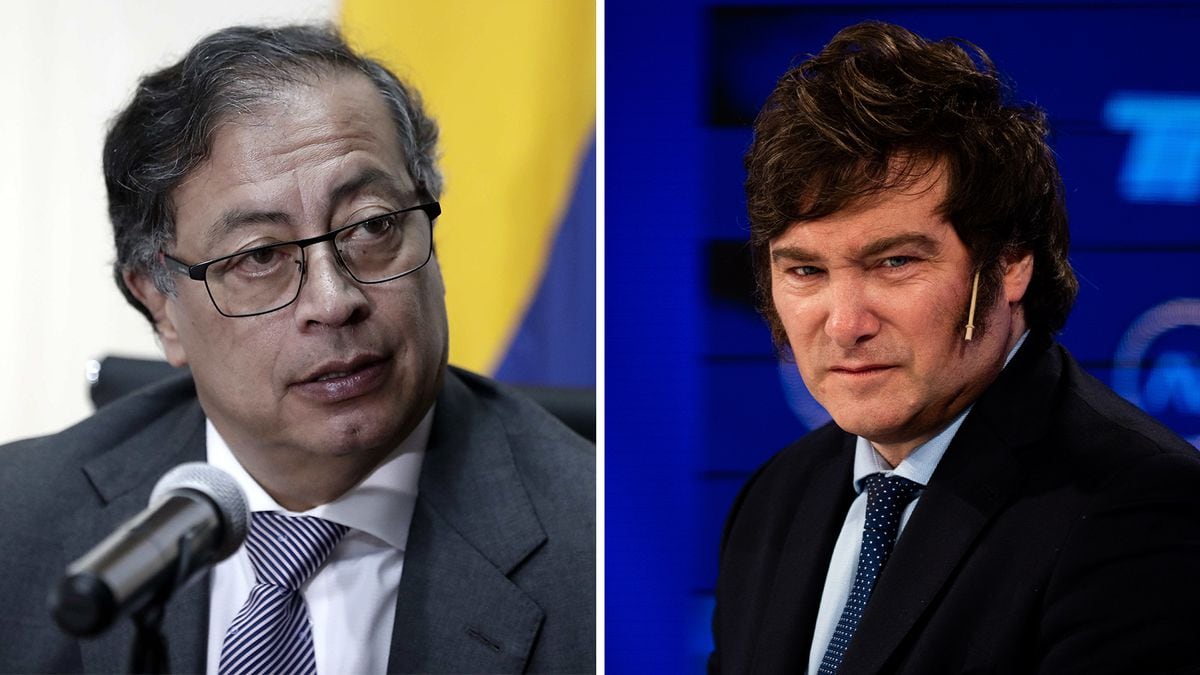
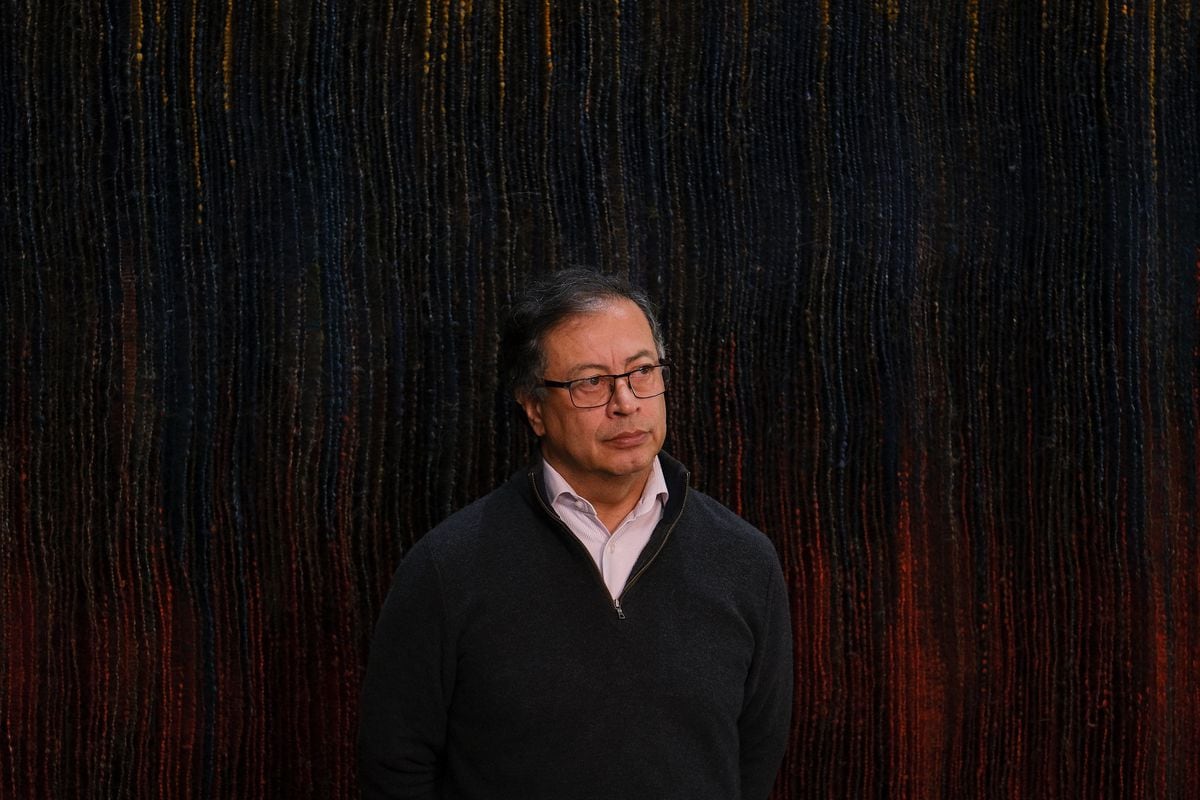
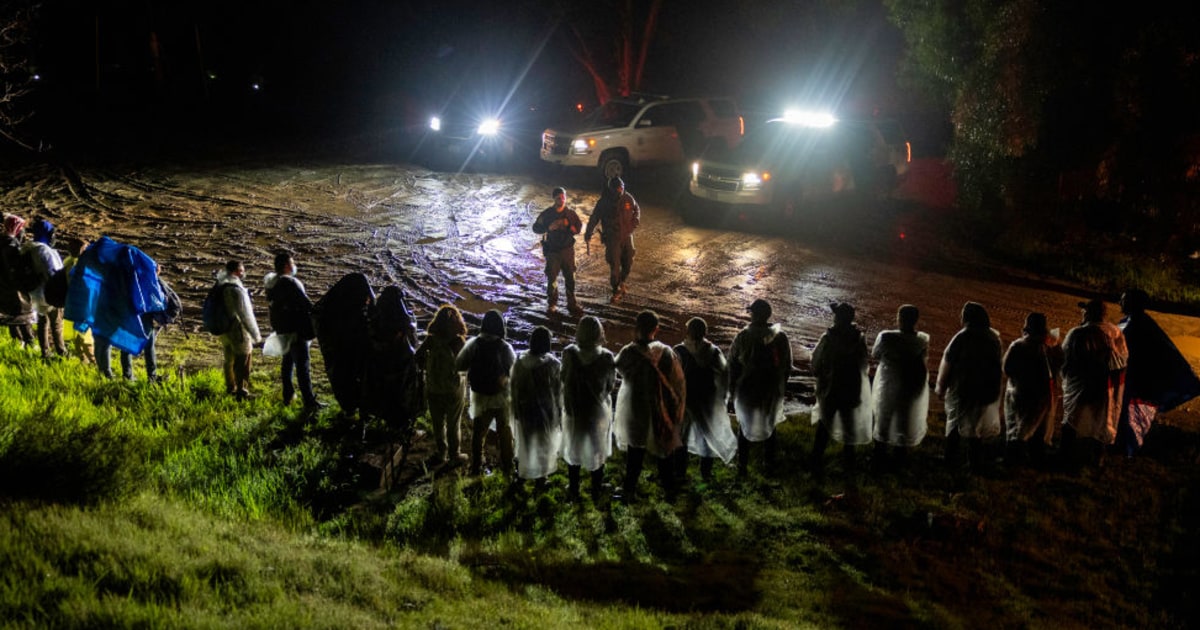
/cloudfront-eu-central-1.images.arcpublishing.com/prisa/NCQFUQJJ4ZHRJLKNWPLQ2MFQR4.jpeg)
